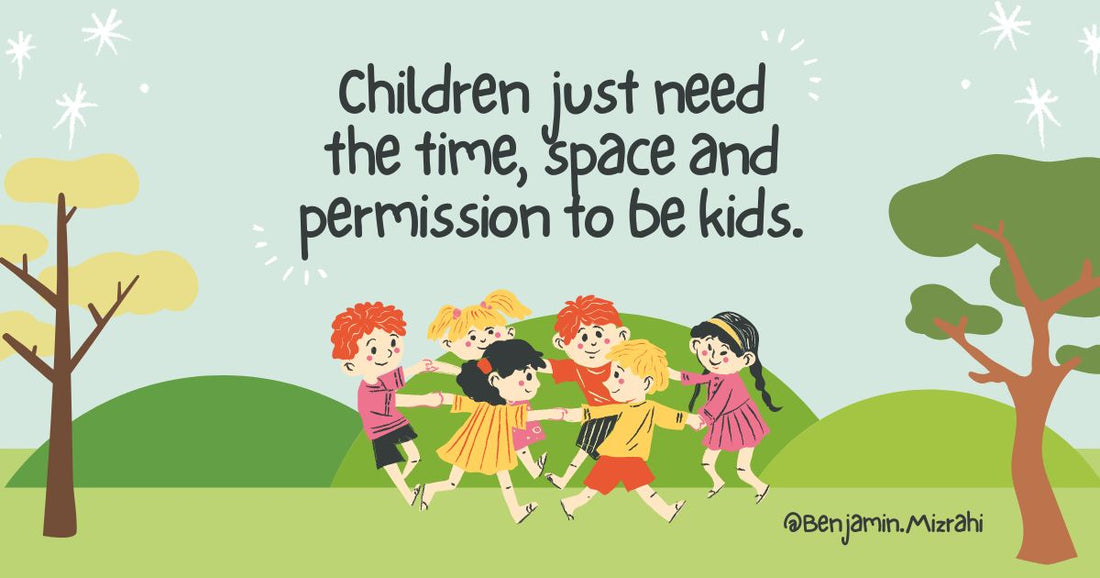
Five Ways Play Benefits Kids
Share
Play is one of the most important aspects of a child’s life because children learn to think creatively and interact socially. Through play, they develop physically and discover a slew of emotional skills, and they learn how to process the world. In short, play is pivotal to your child’s development.
When children oversee their own play, it provides a foundation for their future mental health as older children and adults.
1. Play gives children a chance to find and develop a connection to their own self-identified and self-guided interests. As they choose the activities that make up free play, kids learn to direct themselves and pursue and elaborate on their interests in a way that can sustain them throughout life.
2. It is through play that children first learn how to make decisions, solve problems, exert self-control, and follow rules. As children negotiate both their physical and social environments through play, they can gain a sense of mastery over their world. Play offers enormous psychological benefits, it protects children from anxiety and depression which often occur when an individual feels a lack of control over his or her own life.
3. Children learn to handle their emotions, including anger and fear, during play. In free play, children put themselves into both physically and socially challenging situations and learn to control the emotions that arise from these stressors.
4. Play helps children make friends and learn to get along with each other as equals. Social play is a natural means of making friends and learning to treat one another fairly.
5. Most importantly, play is a source of happiness. When children are asked about the activities that bring them happiness, they say they are happier when playing with friends than in any other situation.
Coach Benjamin Mizrahi. Educator. Learning Specialist. Family Coach. Father. Husband.
More articles on Mr Mizrahi's Blog - Benjamin Mizrahi
